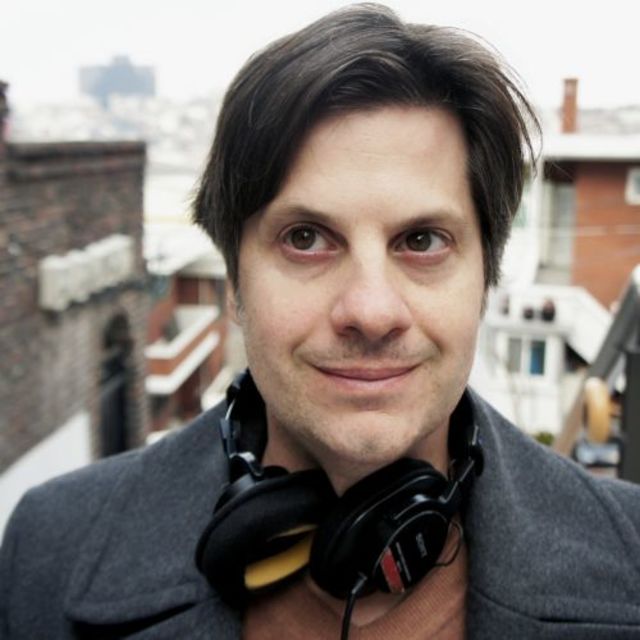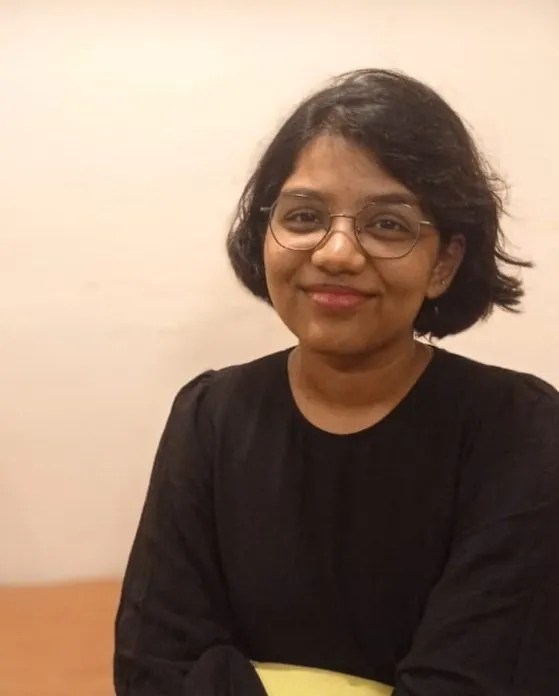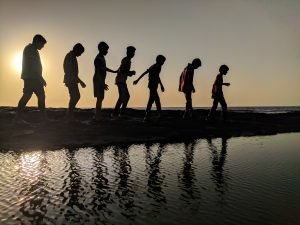Below are some excerpts from Jason’s interview with Success & ABILITY
Amidst the growing urgency of climate change discussions, it’s rare to find a focus on its effects on individuals with disabilities. Jason Strother, a seasoned multimedia journalist and climate change researcher, has dedicated his career to bridging this gap. While he previously covered nuclear weapons and politics in South Korea, the narrative of disability didn’t come to the forefront until a personal revelation compelled him to shift his focus.
“I have never thought that my low vision was the most important thing about me…. but those [disability] are the stories that I think I enjoyed doing well…and my reporting on disability was informed by my lived experience of having low vision impairments.”
The pivotal moment arrived a decade ago in the Philippines when he covered the aftermath of Super Typhoon Haiyan, a catastrophic event that claimed over 6,300 lives. His experience of covering such a large-scale natural disaster made Jason think about the consequences for people with disabilities if such kinds of disasters were going to become commonplace,
“I’m someone with a low vision. And even, three months after the storm when I was reporting in Tacloban, I was having difficulty getting through some of the debris and the mangrove swamps. It made me think about how someone who uses a wheelchair, or is blind, can navigate 200km/hour winds, debris flying and power cables everywhere, can safeguard themselves.”
This sowed the seed for the first on-the-ground radio report, by Jason, in American Media, on how climate change affects people with disabilities. Jason’s work has since encompassed coverage of various natural disasters, disaster management, risk analysis, and more. This also egged him to further understand the impact of disasters on people with disabilities in a country like India.
The scarcity of reporting on disability and individuals with disabilities motivated Jason to launch ‘Lens 15 Media‘ in 2022. His modest media project focuses on reporting about New Jersey’s disabled population, producing accessible video reports on climate disasters and their effects on the disabled community. This venture opened new doors for him such as writing a monthly opinion column about accessibility.
As the work under Lens15 was at its peak, Jason received a research grant through the Fulbright U.S. Scholar Program, to conduct multi-country research on climate change’s impact on people with disabilities in South Asian countries. When researching India, he was guided by Masha Hans, founder of a disability rehabilitation clinic, to kick start his research in Odisha.
“I lived in Bhubaneshwar and spoke with dozens of stakeholders around the state, people including the disability advocates and analysts, government officials, environmental scientists and observers”.
During his time in India, Jason observed that a lot more awareness is needed for people to understand the intersectionality of disability and climate change or media in general.
“They [people] had never considered the intersection of disability and climate change or even questioned why there are [not] more actors with a disability in you know, Indian entertainment media”.
Acknowledging a positive shift in the portrayal of disability in mainstream media, Jason asserts there is still much to be done. While marginalised communities like the LGBTQ+ and religious minorities have garnered attention in Hollywood, individuals with disabilities have remained underrepresented especially in India. Efforts are underway to make popular media more inclusive and accessible, with prominent news outlets like the New York Times and The Washington Post hiring reporters focused on disability. However, there’s ample room for improvement in this space. Jason has initiated dialogues with stakeholders to critically examine the involvement of people with disabilities in the media industry.
“To me students, especially, you know, the college-age generation, they are interested in disability inclusion.”
Today, as an adjunct professor of disability studies in the United States, Jason believes that a robust journalism program can kick start the awareness and involvement of young individuals with disabilities in the media.
The perspectives on disability and individuals with disabilities have evolved significantly across various sectors, including media. As Jason continues his research journey, studying the impact of climate change on people with disabilities, we eagerly anticipate the stories he will bring to light from his experiences in India. We hope to see more passionate individuals like Jason, who draw from their experiences to enhance journalism and storytelling.
Currently, Jason is in the Maldives, concluding his Fulbright award, marking yet another chapter in his remarkable journey.









